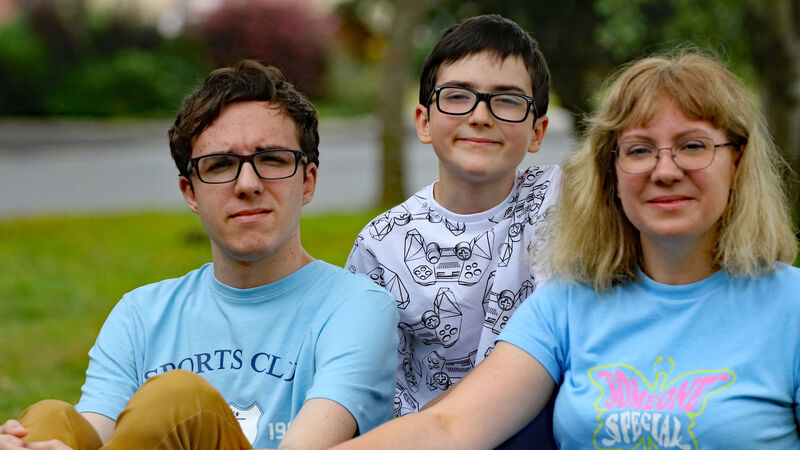'I hope in my heart that in a year the war will be over and we will go back and rebuild our country'

Olena Stzilets with her Sons, Stanyslav, 17, and Vladyslav, 10 Years from Kramatorsk City, Ukraine, living in Groody Student Apartments, Limerick City. Picture: Brendan Gleeson
Soldiers’ death notices and missing people's photos are tied alongside messages of love, hope and determination to a church fence in Killarney today to mark the second anniversary of the illegal and deadly Russian invasion of Ukraine.
Natalia Eismont, who is helping to organise the installation, said that it shows “the broken lives of adults and the wonderful childhood for Ukrainian children, now happy in Ireland".














